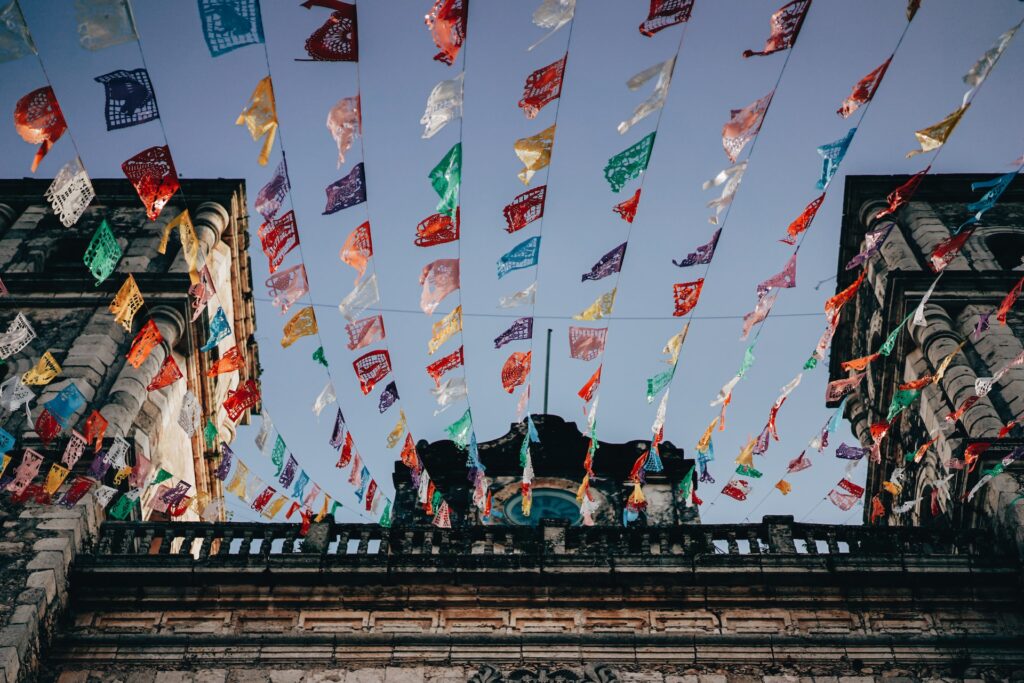Tomorrow is Thanksgiving, the classic American holiday that brings families together to express gratitude for one another. Considered by many as the most important of American holidays.
In October 1621, around 90 Native Americans joined 53 pilgrims for a three-day feast at Plimoth Plantation, where they shared knowledge of hunting and farming. The event is often considered the “first” Thanksgiving, although various Indigenous peoples in the Americas had their own harvest celebrations. Thanksgiving became an established holiday with George Washington’s declaration in 1789. Later in 1863, Abraham Lincoln’s, amidst the Civil War, made it a permanent fixture on the national calendar.
This day makes it appropriate to reflect on gratitude and what it means, but it’s even more fascinating to take a worldwide view.
Gratitude will make you a happier person
Robert Emmons writes in his book “Thanks!” (2007): “Gratitude is literally one of the few things that can measurably change people’s lives.” In positive psychology research, gratitude is strongly and consistently associated with greater happiness. Gratitude helps people feel more positive, relish good experiences, improve health, increase self-esteem, deal with adversity, and build strong relationships.
“Gratitude is not only the greatest of virtues, but the parent of all the others.”
– Cicero

Saying thanks around the world
Highlighting some of findings of studies on Gratitude, we can see how adults give thanks differently around the world:
- Americans are more likely to simply say thank you, compliment the person, “How nice of you!” or promise reciprocity “If you ever need anything, let me know”. Americans (and Italians) are inveterate thankers, expressing gratitude in many everyday situations when people from other cultures simply do not.
- Some Asian, Middle East and Latin cultures have a way to express thanks that will depend on the status of helper or the favor itself. The favor will be acknowledged, or God may be part of acknowledgement “May God repay you” or a simple “Let’s thank God”.
- Since the time of Lao Tzu, Mencius and Confucius, in China gratitude towards parents was the cornerstone of their thinking. They point out that gratitude is “the memory of the heart.”
- In India and Nepal, gratitude is implicit in the Sanskrit word for greeting and farewell, which are the words Namas-tea, which in turn contain the universal act of giving thanks.
Celebrating Gratitude
Harvest season is a time to celebrate abundance. Here’s how some countries, besides the U.S.A. at Thanksgiving do it:
- Greece’s Blessing of the Sea. Men leap in to retrieve a gold blessed cross thrown into the water. Later, fishing boats arrive to receive their annual blessing.
- Bali’s rice goddess Dewi Sri is venerated during harvest times. Villages are adorned with flags, and simple bamboo temples are dedicated to the goddess.
- Argentina’s monthlong harvest celebration incudes regional floats, beauty queens, fireworks, music and dances. The season’s first grapes are sprinkled with holy water.
- China’s Mid-Autumn Festival or Moon Festival is held to give thanks for the harvest and encourage life-giving sunlight for the following year.
- Ghana’s Ewe people celebrate the end of the rainy season and the first appearance of yams, a staple crop. Dances, parades and feasts mark this festival.
- Jewish Sukkot is celebrated worldwide, mostly in Israel. To celebrate a bountiful harvest, families build, eat, and sometimes sleep, for a week in makeshift huts, or sukkah.
- Thailand Chanthaburi’s harvest Fruit Fair shows it’s beautiful and colorful gemstones and fruits.. Parade floats are decorated with beautiful local fruits.

Expressing Gratitude
Another way to express gratitude is through a higher power:
- In Japan, meals traditionally begin with “itadakimasu”. It can be translated to “I humbly receive this meal.” But its intention is far more broad, it thanks everyone who helped bring food to the table, he/she who prepared it, the hunters, farmers and fishermen.
- Latin Americans might offer up this prayer: “To those who have hunger, give bread. And to those who have bread, give the hunger for justice.”
- In Ghana: “Earth, when I am about to die I lean on you. Earth, while I am alive I depend on you.”
- Christians’ prayer: “Thank you, God, for the world so sweet, thank you for the food we eat. Thank you for the birds that sing; thank you, God, for everything.” Or the one my family said at each meal “Bless us Lord, and these thy gifts, which we are about to receive, from thy bounty, through Christ, our Lord. Amen.”
- Sioux North American tribes repeat the following (short version): “I think about the common things like this pot. The bubbling water comes from the sky. The fire comes from the sun. The meat stands for our animal brothers who gave themselves so we should live. These things are sacred. Looking at that pot of good soup, I am thinking how, in this simple manner, the Great Spirit takes care of me.”
There are many findings on this subject on how we appreciate the kind things that other people do for us—and they offer insights into how we can spread gratitude around a diverse world. Take a look at these various articles on the subject.




Pingback: 5 Ways to Incorporate Gratitude in Intercultural Workplaces